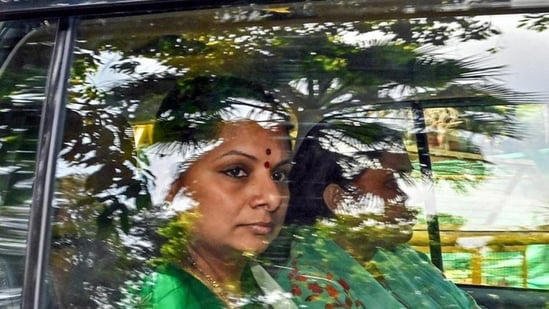The Central Bureau of Investigation (CBI) has arrested K. Kavitha, a prominent leader of the BRS (Bharatiya Rajya Swabhiman Party), in connection with the Delhi excise policy case. The arrest of Kavitha, who wields considerable influence in political circles, underscores the agency’s relentless pursuit of justice and accountability in matters of public interest.
The Delhi excise policy case, which has been under the scanner for alleged irregularities and corruption, revolves around the formulation and implementation of policies governing the sale and distribution of liquor in the national capital. The CBI’s investigation into the matter has unearthed evidence suggesting systemic malpractices, abuse of power, and collusion between government officials and vested interests.
K. Kavitha’s arrest comes as a significant development in the ongoing probe, as she is believed to have played a pivotal role in influencing the formulation of the excise policy and steering it in favor of certain liquor vendors and stakeholders. As a prominent leader of the BRS, Kavitha’s alleged involvement in the case has raised serious questions about the integrity and transparency of the policymaking process and the accountability of elected representatives.
The arrest of K. Kavitha underscores the CBI’s commitment to upholding the rule of law and combating corruption at all levels of governance. By holding accountable those entrusted with public office, the agency sends a powerful message that no one is above the law and that the sanctity of public institutions must be preserved at all costs.
Moreover, K. Kavitha’s arrest has triggered a political storm, with opposition parties seizing upon the development to level allegations of corruption and malfeasance against the ruling government. The BRS, which has been vocal in its criticism of the government’s policies and actions, now finds itself embroiled in a high-stakes legal battle that could have far-reaching implications for its political fortunes.
The Delhi excise policy case has been a subject of intense scrutiny and public outrage, with allegations of rampant corruption and favoritism tarnishing the image of the government and eroding public trust. The CBI’s arrest of K. Kavitha represents a crucial step towards restoring accountability and ensuring justice for those affected by the alleged malpractices.
However, K. Kavitha’s arrest is not without controversy, with supporters of the BRS rallying behind her and vehemently denying any wrongdoing on her part. They argue that the charges against her are politically motivated and aimed at tarnishing her reputation and undermining the party’s credibility. They maintain that Kavitha is innocent until proven guilty and express confidence in her ability to defend herself in a court of law.
The arrest of K. Kavitha also raises broader questions about the state of governance and accountability in India’s political landscape. The case highlights the need for greater transparency, oversight, and accountability mechanisms to prevent the abuse of power and ensure the integrity of public institutions. It underscores the imperative of strengthening anti-corruption laws and enforcement agencies to effectively combat graft and malfeasance in public life.
Furthermore, K. Kavitha’s arrest serves as a wake-up call for political parties and leaders to uphold the highest standards of ethics and integrity in their conduct. It underscores the importance of adhering to ethical principles and serving the interests of the people with honesty and integrity, rather than succumbing to the temptations of power and privilege.
In addition, the arrest of K. Kavitha in connection with the Delhi excise policy case represents a significant development in the ongoing probe into alleged corruption and malpractices. The CBI’s action underscores the agency’s commitment to upholding the rule of law and holding accountable those entrusted with public office. As the case unfolds, it serves as a sobering reminder of the imperative of transparency, accountability, and ethical governance in India’s political landscape.

